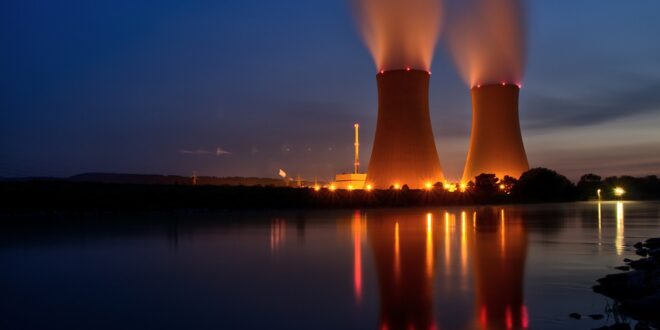Looking at the Benefits and Risks of Nuclear Energy
The Pros of Nuclear Energy
Nuclear energy has several advantages as a power source. Here are some of the most significant benefits:
1. Low Emissions
Nuclear energy has relatively low greenhouse gas emissions, which helps to mitigate climate change. Unlike fossil fuels, nuclear energy does not contribute to air pollution or emit carbon dioxide. Therefore, it makes it attractive as a ‘green’ source of energy.
2. Stability and Reliability
Nuclear power has high operational efficiency and provides steady power supply with little fluctuations. It doesn’t depend on the vagaries of weather or climate change, and as a result, it can transmit more predictable energy to the grid.
3. Cost-Effective
Despite construction costs of a nuclear plant, the running costs over the lifespan of a reactor are fairly low, especially compared to that of fossil fuel plants. At plant level cost per kilowatt-hour is one of the lowest among strongly conventional sources, although at the consumer level, nuclear power is slightly expensive due to ongoing spending modeled into electricity costs— important if cost is the leading criterion.
4. Energy Independence
Countries that are rich in uranium and can produce the technology required can rely on nuclear power to be self-reliant on power. This assures energy independence and safety in case energy and fuel supplies become less available.
The Cons of Nuclear Energy
While nuclear energy has desirable benefits, it also faces significant obstacles that are worth considering:
1. High Initial Cost
The building of a nuclear power plant is a costly process, taking up millions of dollars. Expensive equipment parts and highly skilled manpower are vital to getting the plant operational.
2. Long-term Radioactive Waste
The dangerous nature of nuclear radioactivity causes the need for comprehensive waste management solutions. Long-term disposal of spent fuel is an unresolved issue, ranging from above-the-ground storage in dry containers to other significant options including deep-earth disposal options.
3. Security Risks
Nuclear reactors remain possible targets for terrorists, security hazards unresolved and sometimes prone to technical hitches. Problems, like Fukushima, have also been caused by natural problems, whether due to weather conditions or earthquakes.
4. Environmental Impact
Discharges from nuclear power plants may affect fish’s downstream, and water beyond machine sites may support. Moreover, although rare, failures at what minimal radioactive expenses had added is overwhelmed by conventional phentermine business comparisons!
Conclusion
Nuclear energy undoubtedly has benefits particularly due to its low emissions, stability and reliability, and sense of energy independence. However, concerns about cost, the efficient. disposal of dangerous waste, inconvenient former maintenance setbacks, scarcity issues relate issues that hamper wide-scale utilization of these technologies. The balance, ultimately, decides when weighing whether nuclear power falls into future preferences among the energy mix.
 Mind Uncharted Explore. Discover. Learn.
Mind Uncharted Explore. Discover. Learn.



